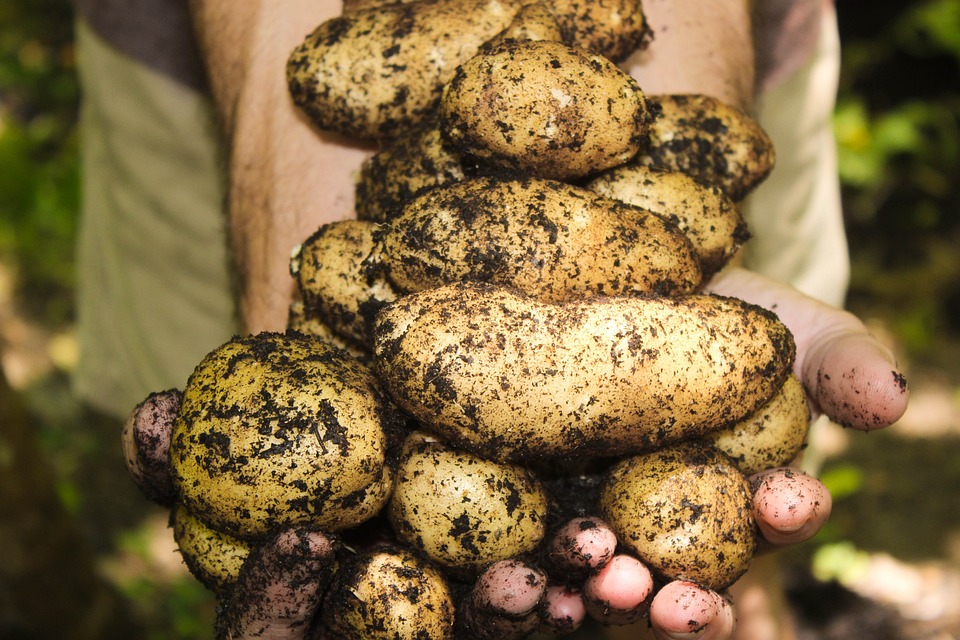Why Sustainable Farming Matters: Exploring the Environmental and Economic Benefits
Once upon a time, I stumbled upon a hidden gem nestled in the heart of nature—a magical oasis with a lush green landscape, buzzing with life and bursting with flavor. It was a sustainable farm, where the air was filled with the sweet aroma of freshly harvested vegetables and the soil beneath my feet felt alive. This experience forever changed the way I viewed farming and gardening. It made me realize the intrinsic importance of sustainable practices in our modern world. In this article, we’ll delve into the limitless wonders of sustainable farming, exploring its environmental and economic benefits, and why it should matter to all of us.
The Environmental Benefits of Sustainable Farming
Sustainable farming practices actively protect and enhance our natural environment. They prioritize the long-term health of ecosystems, soil quality, and biodiversity. Here are some of the key environmental benefits we can achieve through sustainable farming:
1. Soil Health and Fertility: Sustainable farming focuses on building healthy soil, which is the foundation of our food system. By rotating crops, adding organic matter such as compost, and minimizing tilling, sustainable farmers enhance soil fertility, reducing the need for synthetic fertilizers and preserving the delicate balance of essential nutrients.
2. Water Conservation: Sustainable farming techniques aim to minimize water usage while maximizing efficiency. Practices like drip irrigation, rainwater harvesting, and mulching help retain water in the soil, reducing the stress on local water sources. This is particularly crucial in regions facing water scarcity or drought.
3. Climate Change Mitigation: Sustainable farming plays a significant role in combating climate change. Carbon sequestration, the process of capturing and storing carbon dioxide from the atmosphere, can be achieved through sustainable practices such as agroforestry, cover cropping, and regenerative grazing. These methods help build organic matter in the soil, which acts as a carbon sink, ultimately reducing greenhouse gas emissions.
4. Conservation of Biodiversity: By embracing organic and natural farming methods, sustainable farmers protect vital habitats and preserve biodiversity. Avoiding harmful synthetic pesticides and cultivating diverse crop varieties strengthens ecosystems, providing sanctuary for pollinators, birds, and beneficial insects.
The Economic Benefits of Sustainable Farming
Sustainable farming isn’t only good for our planet—it’s also a smart economic choice. Here are a few reasons why sustainable farming practices can benefit both farmers and local communities:
1. Cost Reduction: Sustainable farming techniques often require fewer inputs, such as synthetic fertilizers and pesticides. By reducing reliance on costly external inputs, farmers can lower their production expenses, improving their profitability in the long run.
2. Increased Yields and Quality: Contrary to popular belief, sustainable farming methods can result in higher crop yields. By nurturing healthy soil and promoting natural pest control, farmers can achieve robust and disease-resistant crops, leading to improved harvests. Moreover, sustainable farming often focuses on growing organic and nutrient-dense produce, commanding premium prices in the market.
3. Community Resilience: Sustainable farmers often employ local labor and source inputs from nearby suppliers, creating a ripple effect in the local economy. This promotes community resilience, reduces dependence on external factors, and ensures a reliable and diverse food supply for the local population.
4. Ecotourism and Education: Some sustainable farms have embraced ecotourism and educational initiatives. Opening their doors to visitors, they provide an immersive experience where individuals can learn about sustainable practices and the importance of locally produced food. These activities generate additional revenue streams, further supporting the economic viability of sustainable farming.
Pro Tips from Experienced Sustainable Farmers
1. Start Small and Experiment: If you’re new to sustainable farming and gardening, don’t overwhelm yourself with a large project from the beginning. Start small and gradually expand as you gain experience and knowledge. Experiment with different techniques and adapt them to your specific requirements.
2. Embrace Perennial Crops: Incorporating perennial crops into your farm or garden offers numerous benefits. Perennials have deep root systems that help improve soil structure, prevent erosion, and provide continuous yields year after year.
3. Foster Diversity: Encourage biodiversity on your farm by planting various crops, flowers, and trees. This diversity attracts beneficial insects, pollinators, and birds, creating a healthy ecosystem that minimizes the need for synthetic pesticides.
4. Connect with the Local Community: Engage with fellow farmers, gardening enthusiasts, and sustainable food advocates in your community. Share ideas, resources, and experiences to strengthen the local movement towards sustainable farming.
Sustainable farming is not just an idealistic concept—it’s a practical approach that benefits our planet, our communities, and our own well-being. By fosterin



